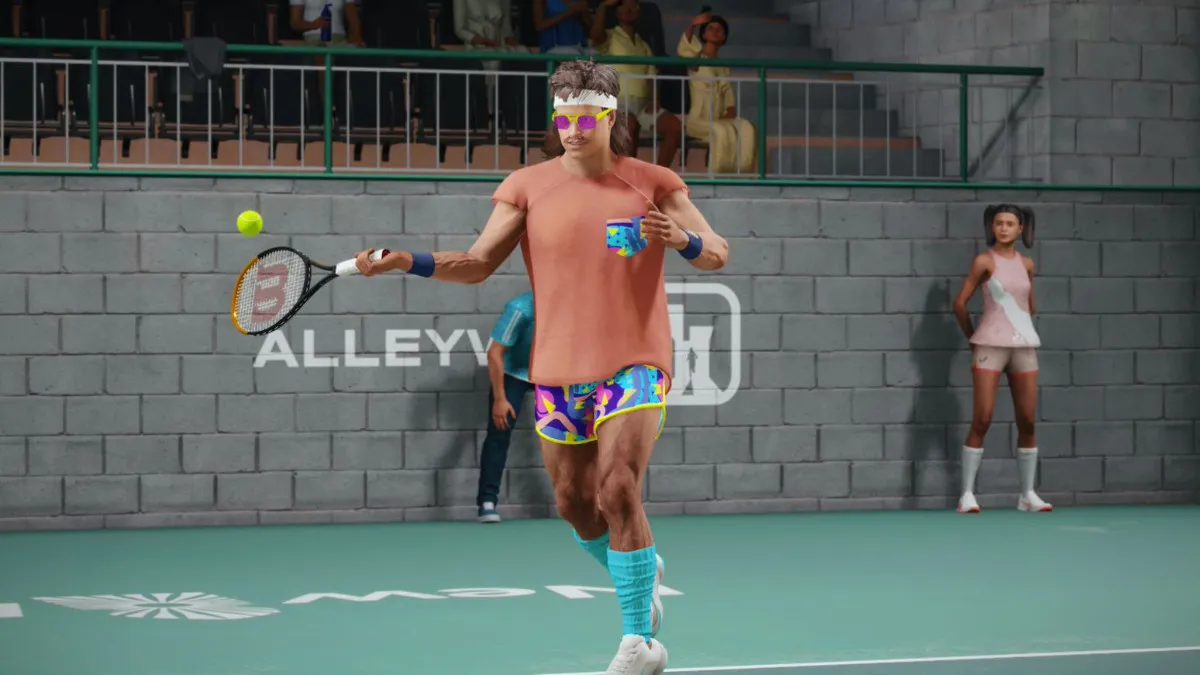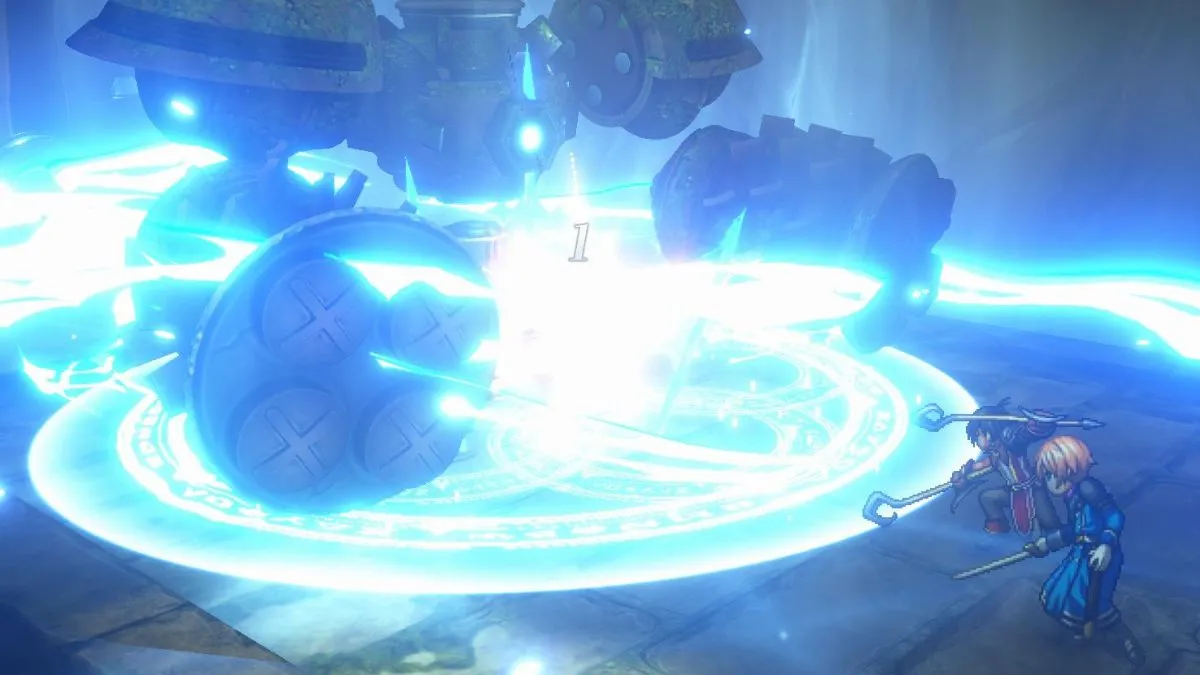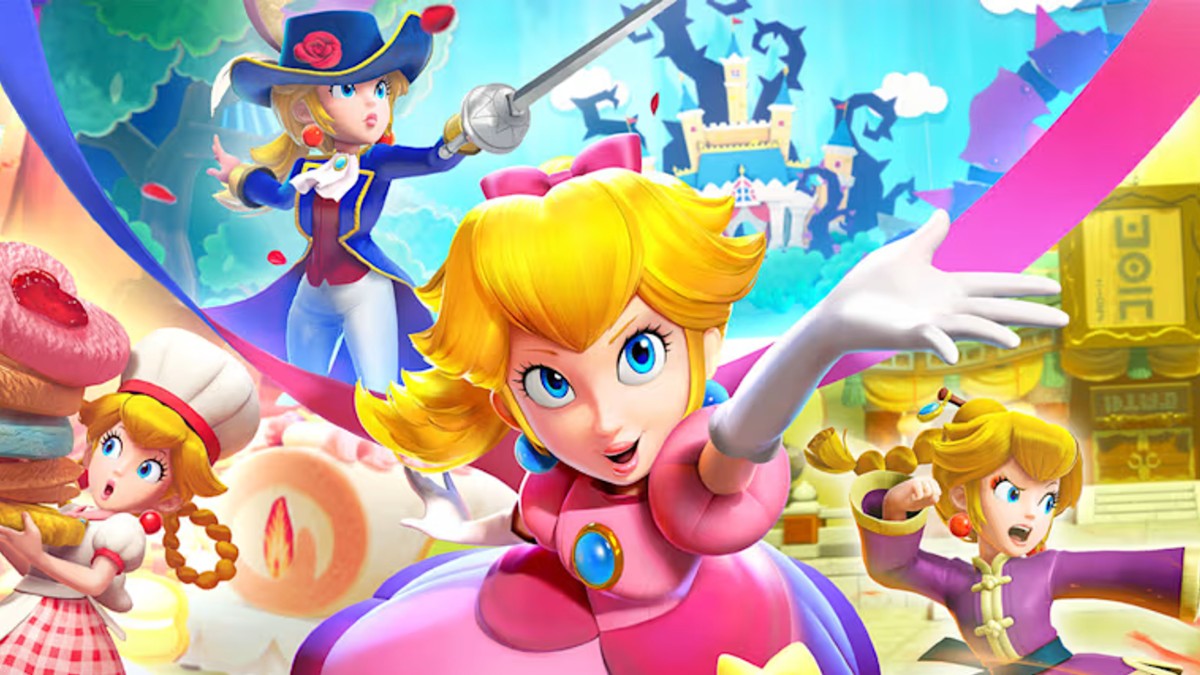I will begin by saying that I love this game. The Witcher 2 is that weird special gem that displays a fully functioning world with deliciously deep personalities that exist both within and beneath the plot. It is easy to get swept up in the breathtaking visuals and well-established characters, but that doesn’t blind me to major flaws in the game design of The Witcher 2.
The fundamental problem is that the game is terrible at teaching you how to enjoy it. I have no qualms with offering players a challenge, but too often I failed in the opening of The Witcher 2 because I simply didn’t have the mechanics properly demonstrated to me, not because it was actually challenging. My experience with the prologue carried through the rest of the game.
The first sign of trouble was when I chose a dialogue option that sent me to battle a dragon with little preamble. As Geralt of Rivia I had to defeat three well-armed individuals without any knowledge of game mechanics or tactics all while dragon fire rained down around me. Windows popped up with the knowledge I needed to survive, but stopping to read them only resulted in a quick death. Geralt, the famous Witcher, died so easily and so many times in the first seconds of the game that I began to wonder if I was just an idiot. I was so frustrated and pissed that any fondness for the characters I’d met so far was completely erased.
To make matters worse, after I finally made it past that section of the prologue – on normal difficulty, damn you, I’m nothing if not stubborn – the game brought me back to the first four dialogue choices. Clicking a different one sent me to the first part of the prologue, which calmly introduced that Geralt has amnesia and has thrown in his lot with the King of Temeria in a little civil war. It’s not necessary to have played the first game because this section deftly explains the opening plot without the constant threat of death. Why on Earth would CD Projekt allow me to play the prologue out of order? Such areas are not the time to allow player agency because the choices are meaningless and playing them out of sequence seriously impacts the player’s enjoyment.
Once I slogged through the prologue, and figured out how to use the five Signs or magic spells effectively in combat (Hint: Quen, the shield spell is your friend) The Witcher deposits you in the backwater of Flotsam on the Pontar river. In the town and surrounding village, you meet people like Margot, the madame who uses a little too much rouge, Cedric, the elf who drinks vodka to quiet his visions and a shopkeeper who may or may not be selling a poisonous and addictive “incense.” This handful of examples illustrates the grimness of the setting, with humans mistreating the dwarfs and elves and violence only a misplaced curse word away. And there is a lot of cursing.
Here the setting overtook me once again as Geralt is reunited with some friends from the first game – Zoltan the dwarf and Dandelion the bard. After a quick, but still painful, QTE fist fight, you are let loose to explore the corrupt human settlement. The center of town is an inn/whorehouse – yes, you can – and outside is a notice board with jobs custom-made for Geralt’s skillset as a monster hunter. Venturing into the forest is a delight as rare herbs and vicious monster seems to be around every twist of the path. Did I mention that the game is beautiful? The forest surrounding Flotsam is gorgeously lush, with crumbled bridges and ruins dotting the natural beauty of waterfalls and foggy lowlands.
It’s a good thing the landscape looks so awesome, because you will be wandering around those woods for a long time. Finding quest-specific locations is usually easy, but simple navigation is tough because there is no indication of which direction is north. The map looks pretty, but uses the Cyrillic alphabet so that kind of sucks for us Anglos. Plus, finding some of the objectives of the side-quests is nearly impossible because they blend in with the background. The main quests also have you going back and forth to the same location often which made me wonder why they spent so much time building the rest of the place.
By this time, the combat feels like a snap as long as you’ve drunk the right potions and stopped spamming the Igni sign (fireball.) Effective fighting involves creative use of the Control menu, which slows time and allows you to switch signs and secondary weapons like bombs and throwing daggers. Parrying attacks and countering can feel a lot like dueling and that’s when the combat of The Witcher really sings. But there is sometimes a terrible lag between pressing a button and witnessing Geralt respond, which encourages a weird constant tapping of the keys to make sure the command goes through. For combat whose fun depends on flow, this is a monstrous error.
Drinking potions gives you an edge in combat, at least I assume so because I never seemed to have drunk the right potions at the right time. You can’t drink potions while you are engaged in a fight, which seems like a silly holdover from the meditation mechanic of the first game. There is a lot of granularity in the potion system, with most giving you both positive and negative effects. I thought that once I bought enough recipes, I’d be able to dovetail the effects of the three potions you can drink at a time for a net gain, but those recipes never materialized. I defaulted to only using the few potions that I couldn’t do without, namely Cat, Swallow and Tawny Owl which let me see in the dark and regenerate health and vigor, respectively. Another opportunity missed.
The inventory and crafting systems are a mess. You soon end up with a crapload of stuff, especially if you’re like me and you have to open every box, sack and barrel in the game. (Quick aside: I wish games didn’t reward me for entering every house and robbing people’s cupboards right in front of them. I know Geralt is badass but wouldn’t someone object to his thievery?) The list interface screams for some way to sort, and there’s absolutely no good reason for every recipe to clog up your inventory. Crafting weapons and armor can only be done by speaking to the right person with the appropriate materials and recipe, that much I can understand, but I fail to see why I can’t easily see which recipes the merchant has that I don’t already own, or why I have to wait for a slow scroll to see which materials are needed. It’s fine if you want me to craft 12 robust cloth from regular cloth in order to make that leather armor, but at least let me queue up that process.
There’s also just too much that’s never explained in the game at all. I only knew that buying and reading a book about specific monsters let me loot more from the corpses of said monster from playing the first Witcher. From the start, some monsters will drop mutagens which I dutifully collected because I thought the game would explain their value. It turns out that you use mutagens to enhance abilities through the talent tree system and you only get one shot so there’s no reason to keep the “lesser” mutagens at all, all of which I only learned from other players.
Beyond interface complaints, the action of The Witcher is not paced well at all. I loved the richness of the setting and learning about the various kings and their eponymous assassins was fascinating, but even a good cutscene can grow long. Momentous conversations lumped on top of one another peppered with a meaningless “action” sequence like walking a prisoner only annoyed me, doubly so because I wasn’t allowed to save or drink the potions needed for the fight I was anticipating.
And while the tone of the writing rides a nice balance between dark humor and just dark, it sometimes strays too far. One particular moment stuck out: when Geralt openly mocks the plot of The Lord of the Rings as a frivolous fairy tale, it feels like such parody is beneath the integrity the game achieves the rest of the time. Especially when the mocking comes after a scene clearly derived from the “Council of Elrond” trope.
The Witcher 2 continues the epic story of Geralt of Rivia begun by the short stories of Polish fantasist Andrzej Sapkowski and will be a highlight for many PC loyalists for years to come. I can’t ignore CD Projekt’s poor design choices and crippling interface, however. I will likely replay The Witcher 2 again and again as I wait for the inevitable threequel, but each time I do I will curse the chance the game had to deliver mechanics to match its glorious setting.
Bottom Line: As a world-building exercise, The Witcher 2 succeeds masterfully but there are deep flaws in its game design.
Recommendation: The Witcher 2 is worth playing for the atmosphere alone, but unless you can easily dismiss problematic design, you might do better waiting for GOG.com to drop the price.
[rating=3.5]This review is based on the PC version of the game.
Game: The Witcher 2: Assassins of Kings
Genre: RPG
Developer: CD Projekt RED
Publisher: Atari
Platform(s): PC
Available from: Amazon(US), GameStop(US), Amazon(UK), Play.com(UK)



